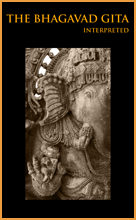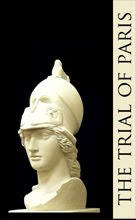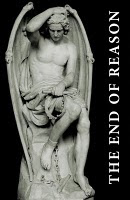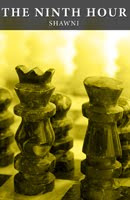One need not be immersed in the deep waters of The Mahabharata to glean wisdom from The Bhagavad Gita, from Krishna’s counsel to Arjuna in a time of war. Nor does one need to be Hindu; for the battle against one’s own lower nature is preached in every major religion. The Islamic concepts of Greater and Lesser Jihad are particularly relevant. The notion of Jihad is much abused and maligned today. The Lesser Jihad is the one with which most are familiar; it is holy war against the enemies of religion; it is the outer form of war. The Bhagavad Gita is a book about the war between the Pandava and the Kuru, the war of Arjuna and his brothers against impious kinsmen. But The Bhagavad Gita is a metaphor for what Muslims call the Greater Jihad, the war against one’s own evil inclinations. Set in the backdrop of an ancient war 3000 years ago, the message of the Gita remains meaningful and is properly considered both a revealed religious text and a classic work of philosophy. The allegory of the Gita still resonates.
Like Arjuna, we stand on the field of Kurukshetra facing the armies of passion, of greed, and of pride. These we have too long considered our friends, our companions, as dear to us as family. Krishna urges us to fight, to see them as enemies, to vanquish them. Yet we hesitate, uncertain, fearful that destroying them destroys some part of ourselves. Krishna counsels us; this war is not spiritual suicide, but whether we win or lose we must fight for this war is the path to our liberation from the snares and springes of an inconstant world. This is what Krishna taught three thousand years ago.





